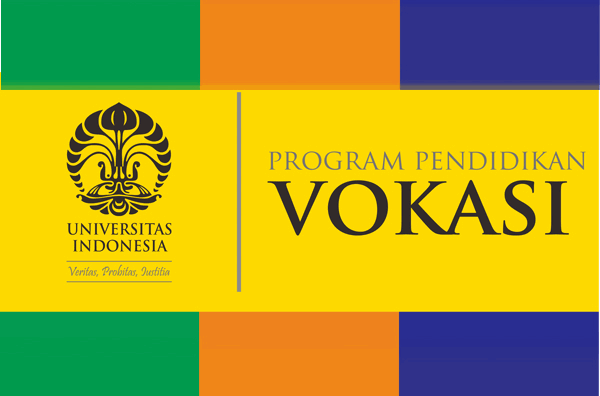Jurnal Fisioterapi Terapan Indonesia
Abstract
Brachial Plexus Injury (BPI) is one of the most severe peripheral nerve injuries, frequently resulting from traffic accidents and causing significant functional impairment of the upper limb. Management of BPI requires a multidisciplinary approach, including physiotherapy interventions aimed at restoring muscle strength, preventing atrophy, and improving sensory and motor function. This article reports the physiotherapy management of a 23-year-old male with BPI following a traffic accident, who underwent surgical procedures and rehabilitation at Dr. Sardjito Hospital, Yogyakarta. The method used is a case report with literature review conducted via PubMed using relevant keywords. Physiotherapy interventions included Neuromuscular Electrical Stimulation (NMES) and forced passive exercise. Evaluation results indicated improvements in muscle strength and prevention of muscle atrophy after three therapy sessions, although active motion limitations and sensory disturbances persisted. In conclusion, the combination of NMES and forced passive exercise is effective in increasing muscle strength and preventing atrophy in BPI patients, thereby supporting gradual and periodic functional recovery.
References
1. Li H, Chen J, Wang J, Zhang T, Chen Z. Review of rehabilitation protocols for brachial plexus injury. Front Neurol. 2023;14(April):1–12.
2. Kaiser R. Epidemiology , etiology , and types of severe adult brachial plexus injuries requiring surgical repair : systematic review and meta-analysis. 2018;(1).
3. Suroto H. Lesi Pleksus Brakialis Tata Laksana Komprehensif [Internet]. Ferdiansyah, editor. Vol. 11, Sustainability (Switzerland). 2019. 1–163 p. Available from: http://scioteca.caf.com/bitstream/handle/123456789/1091/RED2017-Eng-8ene.pdf?sequence=12&isAllowed=y%0Ahttp://dx.doi.org/10.1016/j.regsciurbeco.2008.06.005%0Ahttps://www.researchgate.net/publication/305320484_SISTEM_PEMBETUNGAN_TERPUSAT_STRATEGI_MELESTARI
4. Hill JR, Lanier ST, Brogan DM, Dy CJ. Management of Adult Brachial Plexus Injuries. J Hand Surg Am [Internet]. 2021;46(9):778–88. Available from: https://doi.org/10.1016/j.jhsa.2021.05.008
5. Grosu-bularda A, Vancea C, Hodea F, Cretu A, Dumitru C, Ratoiu V. Optimizing Peripheral Nerve Regeneration : Surgical Techniques , Biomolecular and Regenerative Strategies — A Narrative Review. 2025;1–49.
6. Mulyono HB, Jembise T, Elieser, Iswanto D. Evaluasi Outcome Cedera Brachial Pleksus di Rumah Sakit Umum Derah Kota Jayapura. 2022;5(4):1–9.
7. Rich JA, Newell A, Williams T. Traumatic brachial plexus injury rehabilitation using neuromuscular electrical muscle stimulation in a polytrauma patient. BMJ Case Rep. 2019;12(12):1–5.
8. Pejkova S, Filipce V, Peev I, Nikolovska B, Jovanoski T, Georgieva G, et al. Brachial Plexus Injuries – Review of the Anatomy and the Treatment Options. Prilozi. 2021;42(1):91–103.
9. Huang X, Jiang Z, Sun H, Xie B, Lu F, Huang W, et al. The effect of a high-quality nursing model employing low-frequency pulse electrical stimulation combined with early systemic functional exercises on the function of the affected limb in brachial plexus injury patients. 2021;13(5):4939–48.
10. Luo TD, Levy ML, Li Z. Brachial Plexus Injuries. In Treasure Island (FL); 2023. Available from: https://pubmed.ncbi.nlm.nih.gov/29493930/
11. Handayani Y, Siwi K. ANALISA IMPLEMENTASI KEBIJAKAN STANDAR PELAYANAN PRAKTIK FISIOTERAPI MANDIRI BERDASARKAN PERMENKES NOMOR 65 TAHUN 2015. 2024;3(2):1–7.
12. Deodhe NP, Dhage P, Harjpal P. Functional Electrical Stimulation in Conjunction With Proprioceptive Neuromuscular Facilitation ( PNF ) Technique to Improve Upper Limb Function in Traumatic Brachial Plexus Injury : A Case Report Case Presentation Patient information. 2023;15(10).
13. Nugraha DA, Hamidah NA, Rachmawati ND, Fisioterapi D, Lamongan UM, Plalangan J, et al. Electrical Stimulation dan Passive Exercise Efektif dalam Meningkatkan Kekuatan Otot Pasien Lesi Nervus Radialis. 2021;3(Desember):74–7.
14. Wiertel-Krawczuk A, Szymankiewicz-Szukała A, Huber J. Brachial Plexus Injury Influences Efferent Transmission on More than Just the Symptomatic Side , as Verified with Clinical Neurophysiology Methods Using Magnetic and Electrical Stimulation. 2024;
15. Milosevic M, Chin CM, Masani K, Hirata M, Nomura T. Why brain ‑ controlled neuroprosthetics matter : mechanisms underlying electrical stimulation of muscles and nerves in rehabilitation. Biomed Eng Online [Internet]. 2020;1–30. Available from: https://doi.org/10.1186/s12938-020-00824-w
Bahasa Abstract
Brachial Plexus Injury (BPI) merupakan salah satu cedera saraf tepi yang paling serius, seringkali terjadi akibat kecelakaan lalu lintas dan menyebabkan gangguan fungsional yang berat pada ekstremitas atas. Penatalaksanaan BPI memerlukan pendekatan multidisiplin, termasuk intervensi fisioterapi yang bertujuan untuk memulihkan kekuatan otot, mencegah atrofi, serta meningkatkan fungsi sensoris dan motorik. Artikel ini melaporkan penatalaksanaan fisioterapi pada seorang pria usia 23 tahun dengan BPI akibat kecelakaan lalu lintas, yang menjalani tindakan bedah dan program rehabilitasi di RSUP Dr. Sardjito Yogyakarta. Metode yang digunakan adalah studi kasus dengan penelusuran literatur berbasis PubMed menggunakan kata kunci terkait. Intervensi fisioterapi yang diberikan berupa Neuromuscular Electrical Stimulation (NMES) dan forced passive exercise. Hasil evaluasi menunjukkan adanya peningkatan kekuatan otot dan pencegahan atrofi otot setelah tiga kali terapi, meskipun masih terdapat keterbatasan gerak aktif dan gangguan sensoris. Kesimpulannya, kombinasi NMES dan forced passive exercise efektif dalam meningkatkan kekuatan otot dan mencegah atrofi pada pasien BPI, sehingga dapat mendukung pemulihan fungsional secara bertahap dan berkala.
Recommended Citation
Fauzi, Ahmad Fatih
(2025)
"Penatalaksanaan Fisioterapi pada Kasus Brachial Plexus Injury di RSUP Dr. Sardjito Yogyakarta: Case Report,"
Jurnal Fisioterapi Terapan Indonesia: Vol. 4:
Iss.
1, Article 2.
DOI: 10.7454/jfti.v4i1.1107
Available at:
https://scholarhub.ui.ac.id/jfti/vol4/iss1/2
Included in
Other Rehabilitation and Therapy Commons, Physical Therapy Commons, Physiotherapy Commons







